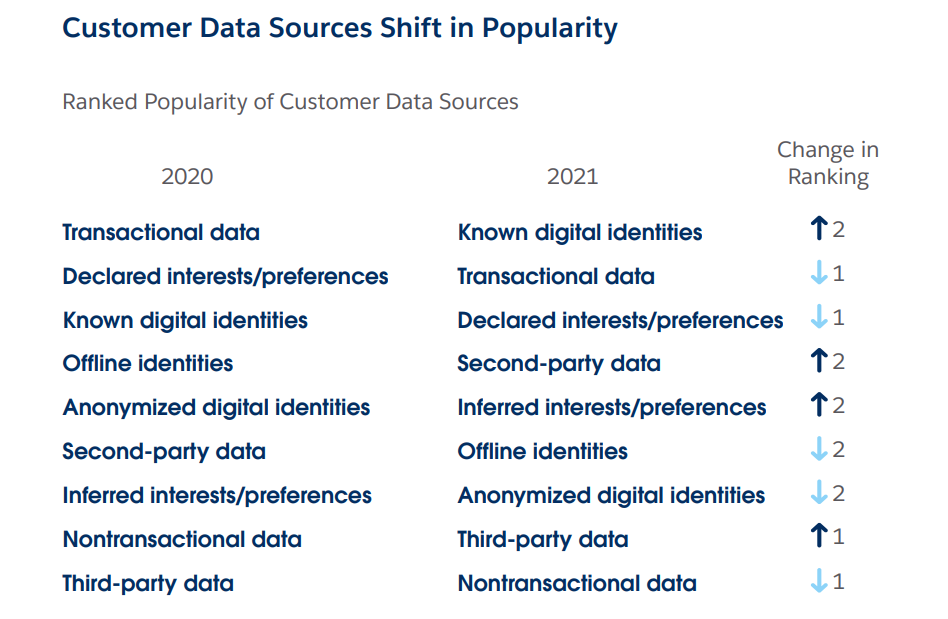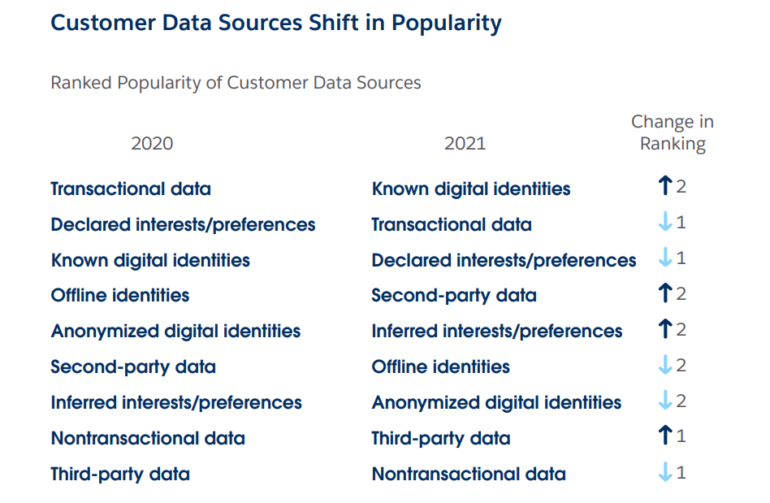As customers leave an ever-larger digital footprint, the amount of data that marketers can mine continues to grow. That data, however, isn’t necessarily valuable if marketers can’t properly manage it. Meanwhile, the rules governing data usage continue to shift.
Salesforce’s annual State of Marketing report, released Wednesday, sheds some light on how marketers are adapting to this dynamic landscape.

“As Apple, Google, and others restrict the use of third-party cookies, however, the relative popularity of data sources is shifting,” the report says. “Known digital identities such as email addresses and social IDs are now the most popular customer data sources, followed by transactional data and declared interests and preferences. Offline identities such as postal addresses and anonymized digital identities like cookies and device IDs saw the biggest year-over-year drops in popularity.”
The report, which surveyed more than 8200 marketing leaders in May, showed that marketers expect a 40% increase in the number of data sources they use between 2021 and 2022.
At the same time, just 33% of marketers are completely satisfied with their ability to create more relevant experiences with customer data. The report also shows that marketers have made only marginal progress in ensuring data quality. For instance, only 42% are completely satisfied with their data hygiene, compared with 37% in 2020. And just 37% are satisfied with the timeliness of their data, compared with 34% in 2020.
Meanwhile, as many as 90% of marketers say their digital engagement strategy has changed since the COVID-19 pandemic began. Marketers are tapping a wide range of digital channels to reach customers. While social media and digital ads are slightly more popular channels, the video saw the biggest increases in value over the past year.
72% of marketers say meeting customer expectations is more difficult than a year ago.



